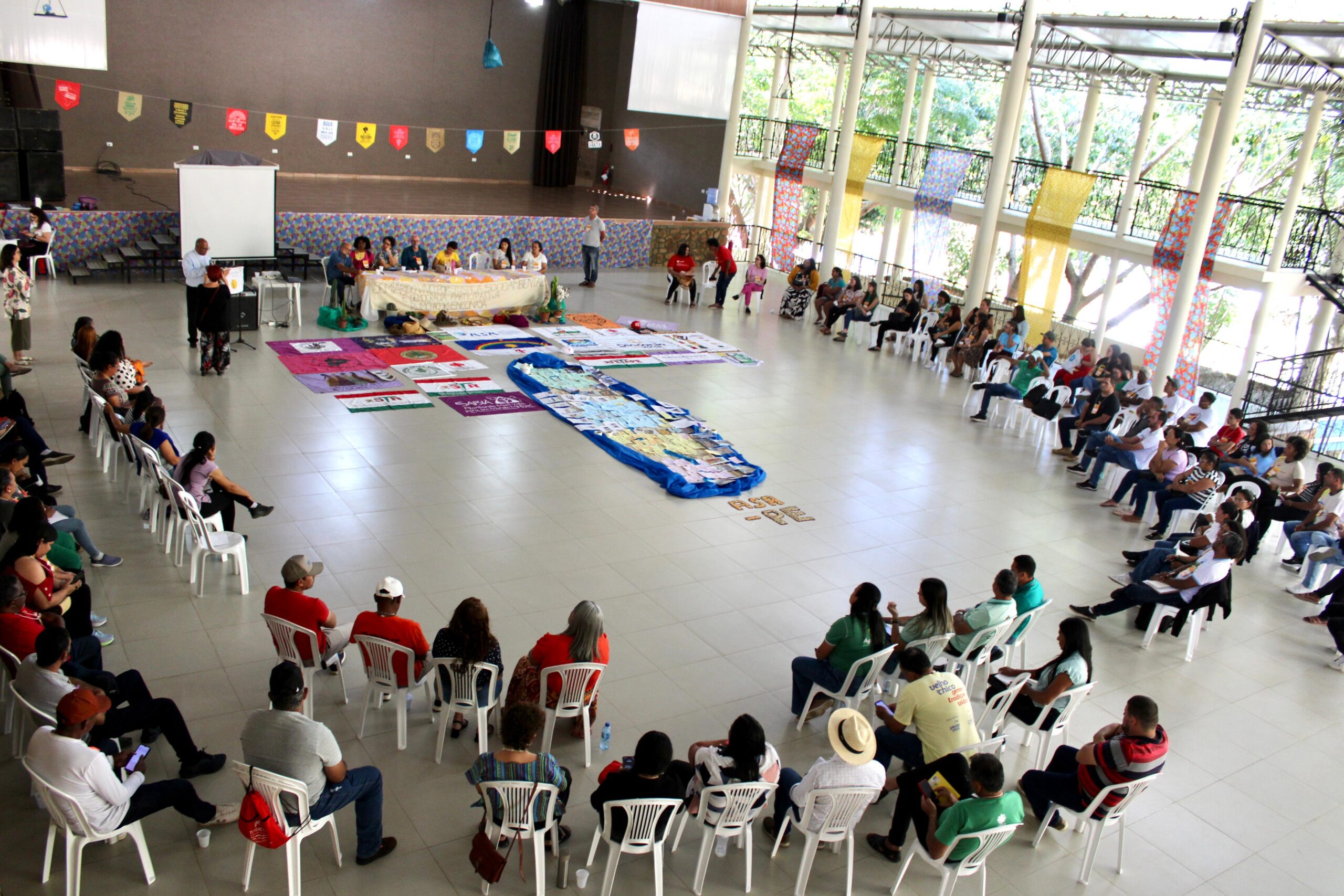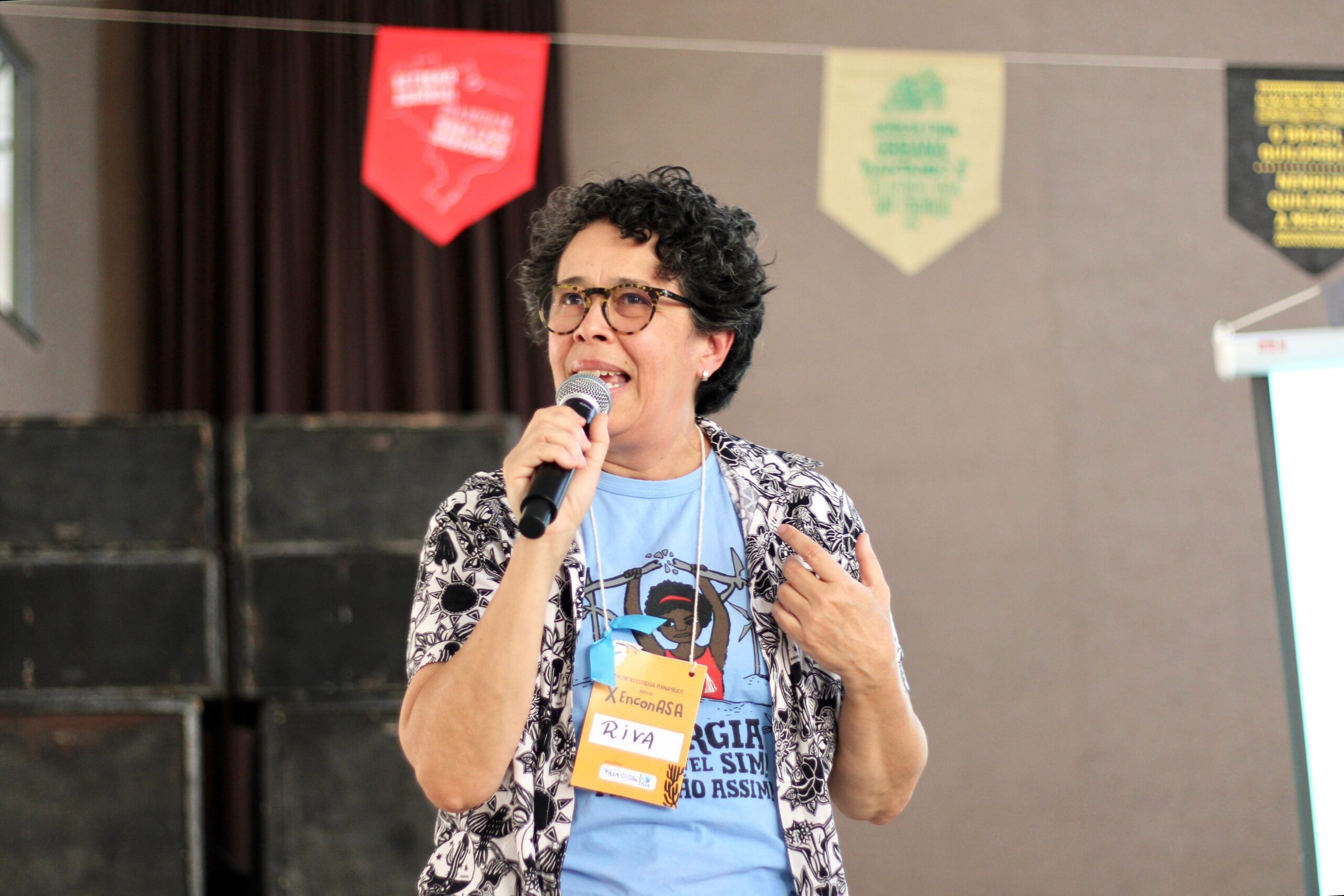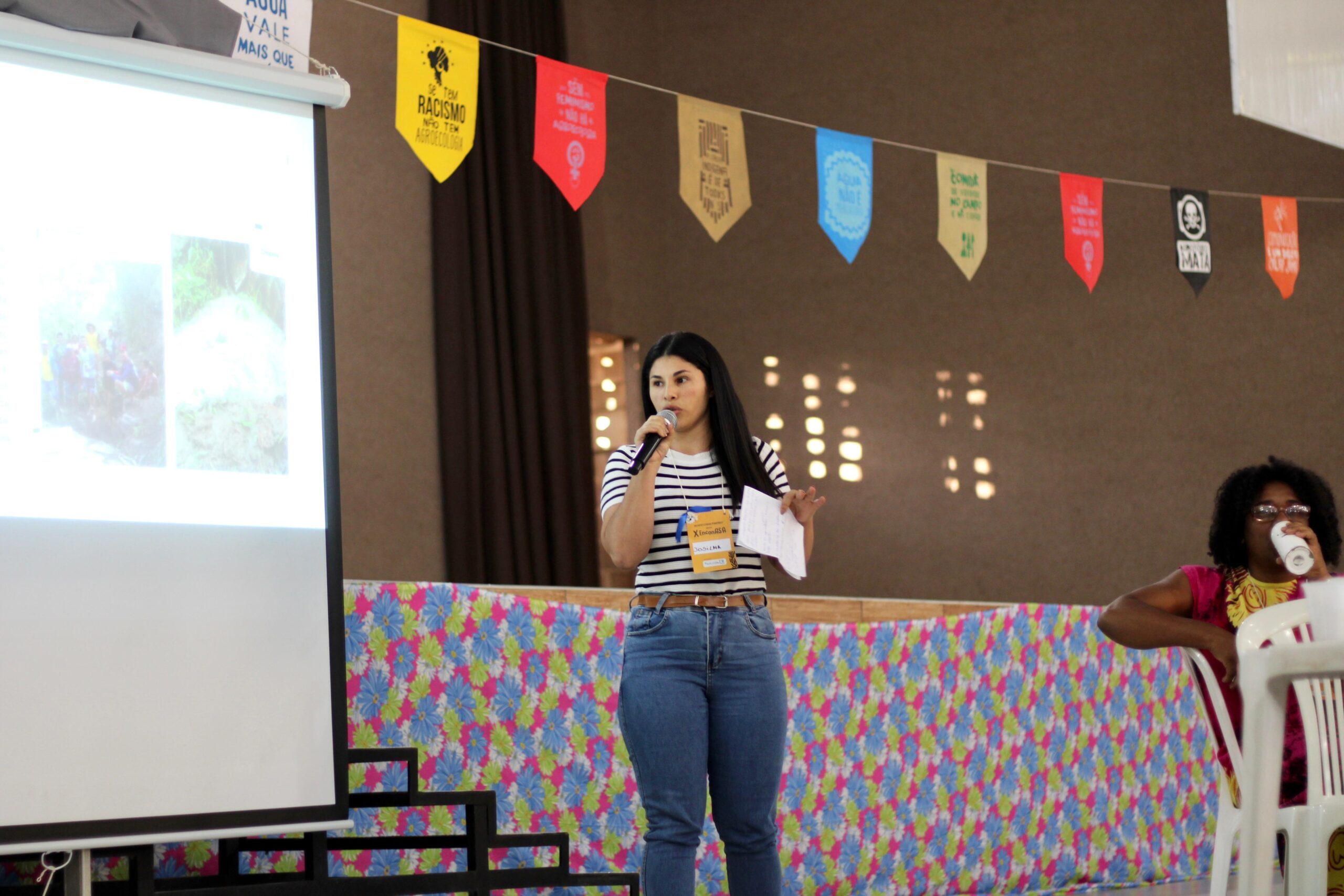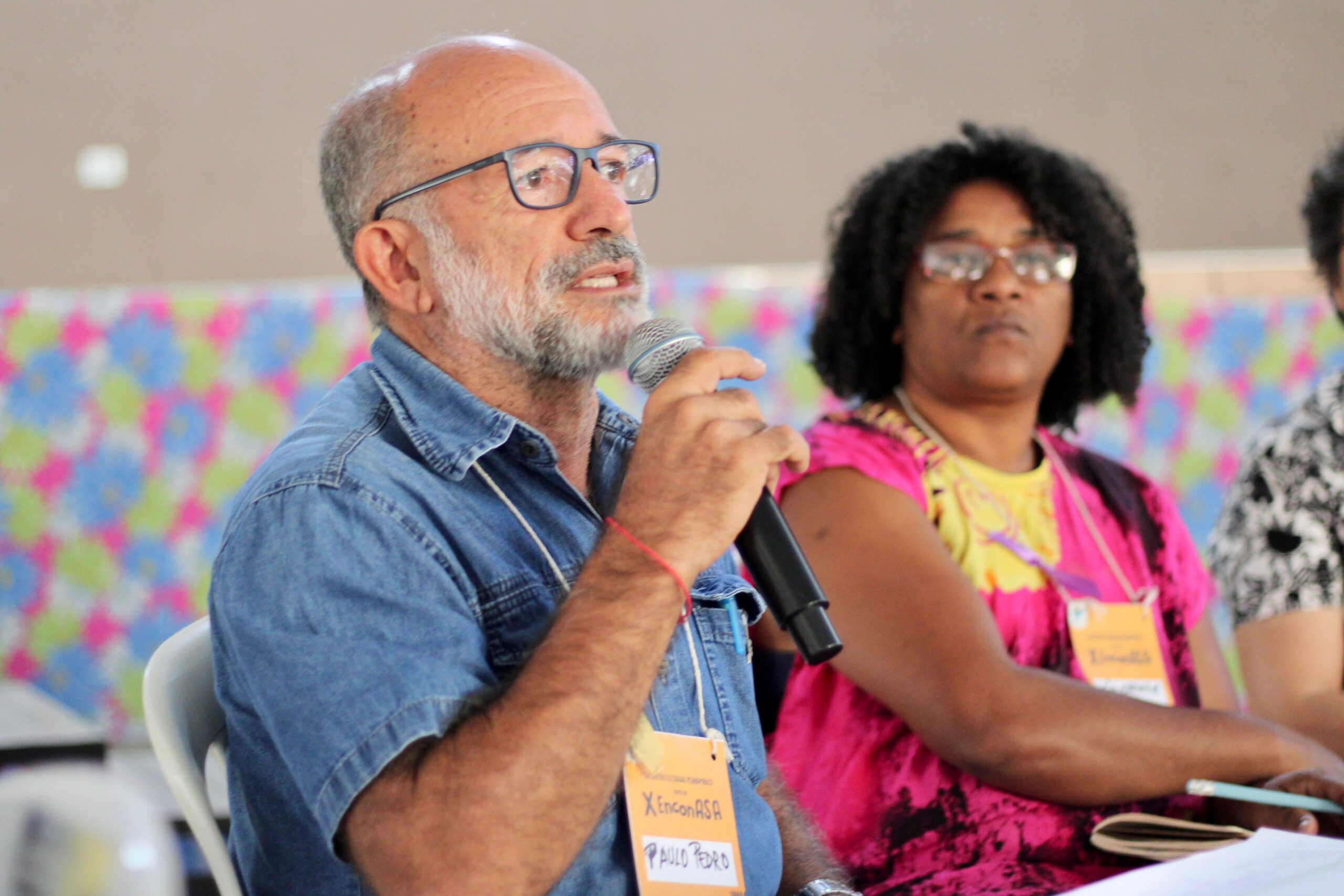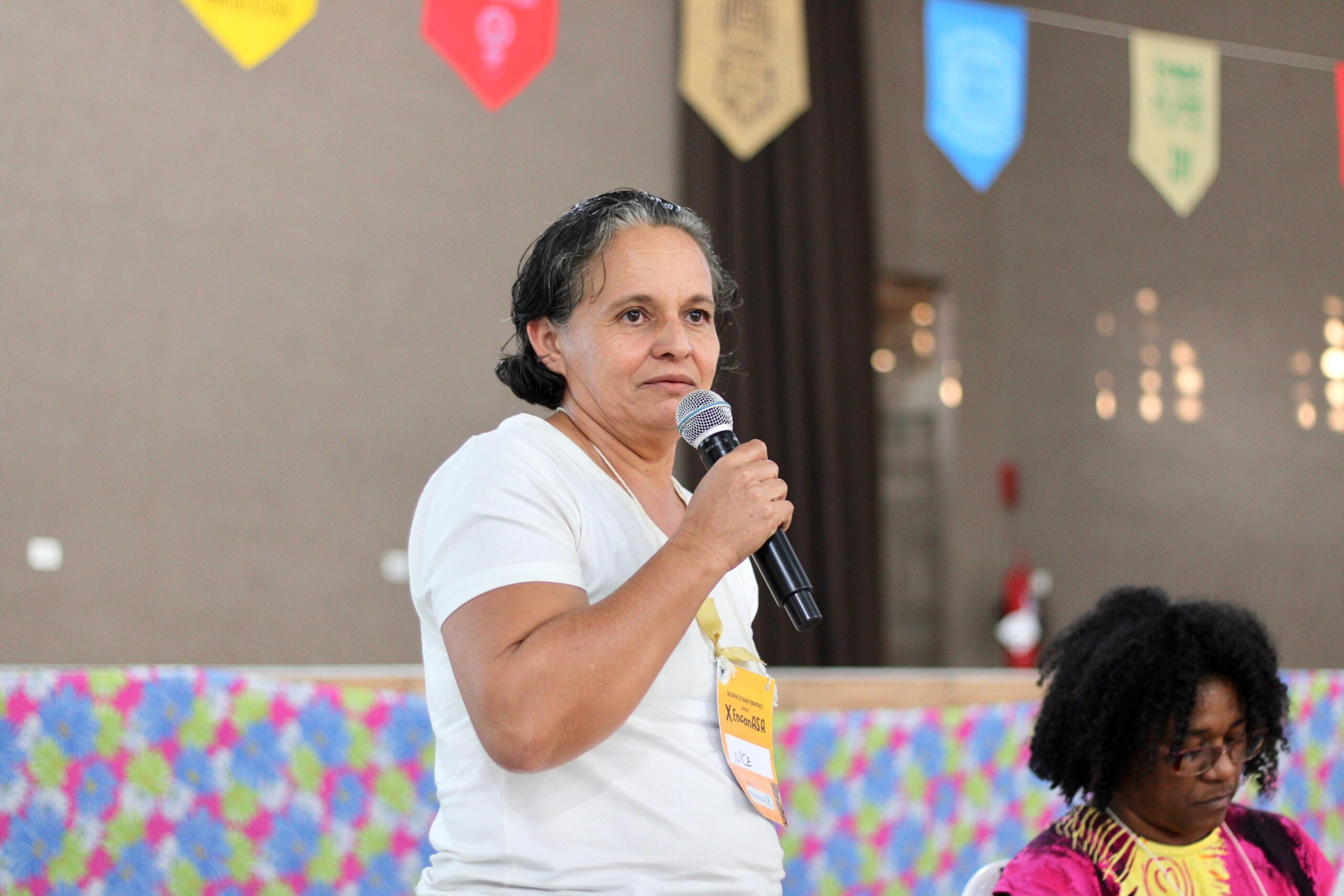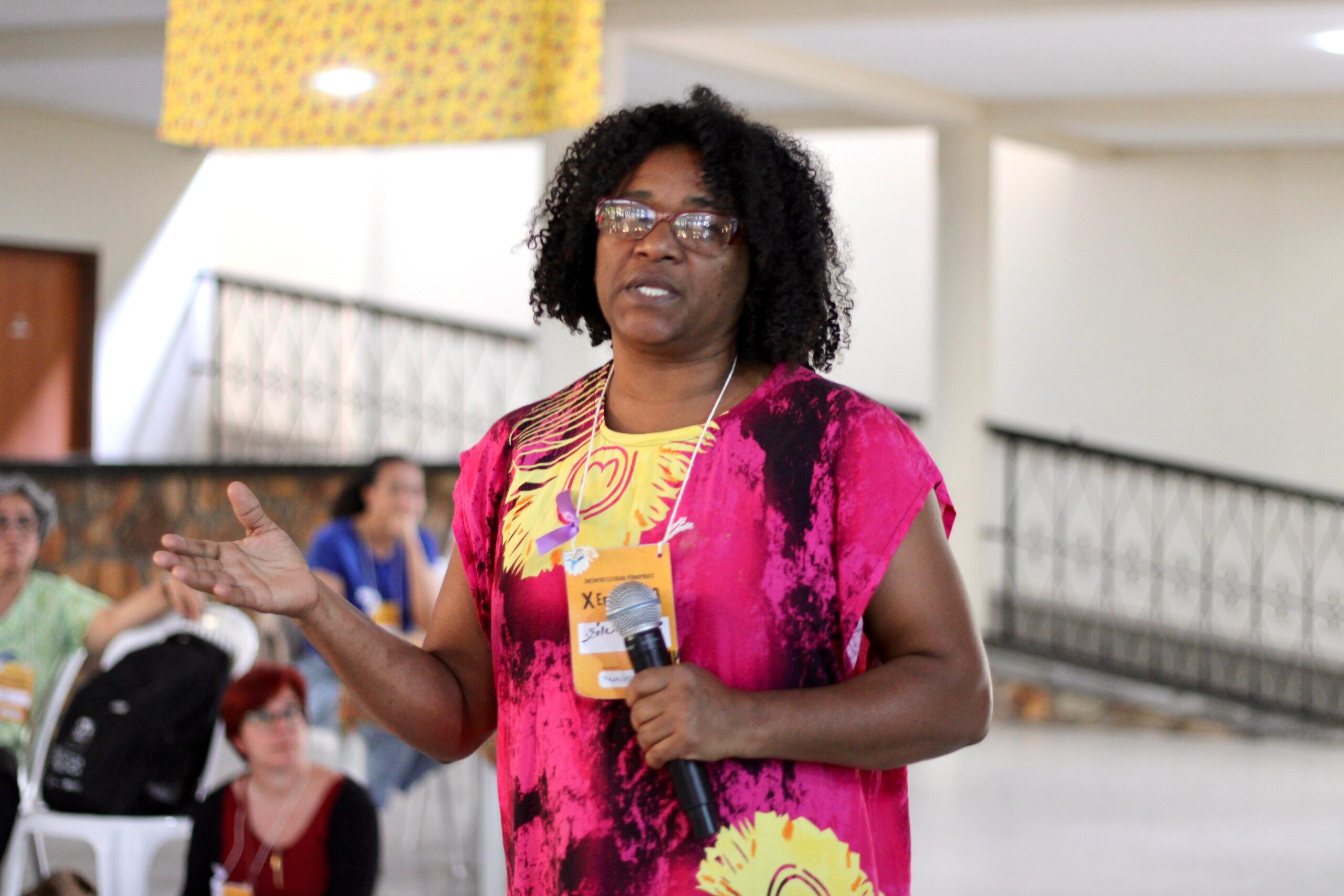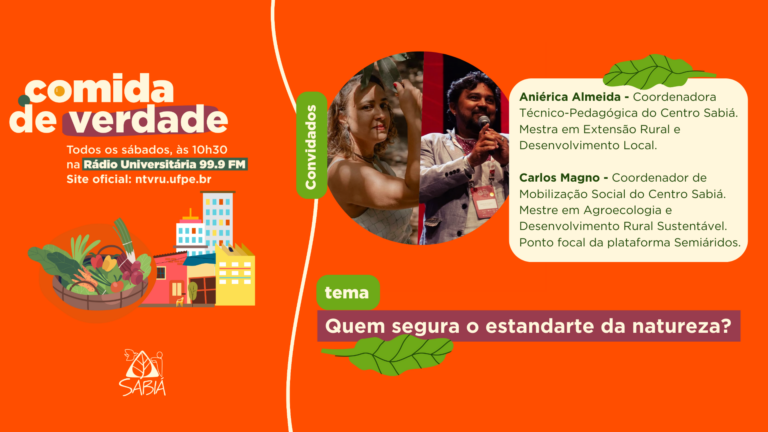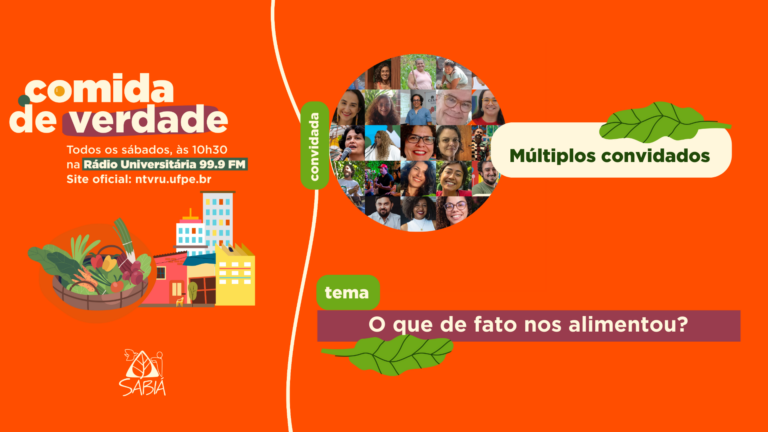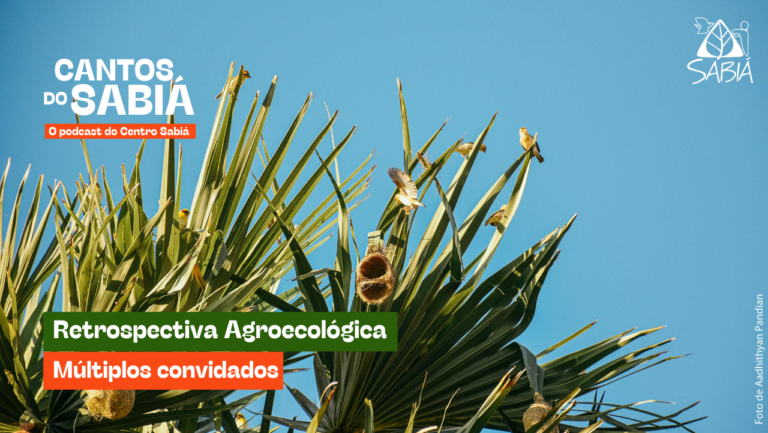Climate change and experiences of resilience in the semi-arid region
Rosa Sampaio (Sabiá Center) and Fabiana Coelho (CBNE2)
The ASA-PE brought the context of the climate crisis in the semi-arid region to the debate with the workshop Climate Change and Combating Desertification, facilitated by Riva Almeida, the Pajeú Territorial Coordinator of the Sabiá Center, and Professor Genival Barros Júnior from the Center for Agroecological Studies, Research and Practices in the Semi-Arid (NEPPAS/UAST/UFRPE).
Riva explains how these changes have been taking place over the years, with the gradual increase in the Earth’s temperature and the consequences of climate disasters such as prolonged droughts and desertification processes in semi-arid regions. “Desertification is the degradation of the land, but not just the degradation of the soil, but also of water resources, the Caatinga biome and the quality of life of humans and animals.”
For Professor Genival, desertification is not just the absence of water. “It’s the absence of life. Without life, there is no water. There’s nothing.” And he explained that statistics show a progressive increase in the rates of aridity in our semi-arid region. “But research also shows that the use of technologies such as agroforestry systems and the reuse of gray water, thanks to the retention of organic matter, has important effects in reversing this picture of extermination.”
The ASA is built on the experiences and experiments of women farmers from the various territories of the semi-arid region. In Pernambuco yesterday, experiences of women agroecological farmers from three territories were presented.
The first experience was of farmer Maria Silvanete Lermen, from Serra dos Paus Dóias, in Exu, in the Araripe hinterland, who brought her ancestral knowledge together with nature, through agroecology and care practices. “Agroforestry systems are also the recovery of ancestral knowledge. And when I enhance this knowledge, I’m enhancing my identity and my relationship with my territory.”
Josilma Bertino, a young farmer from Sítio Sobrado, in Jataúba, in the Agreste region of Pernambuco, shared her experience of restoring springs in the area, a project carried out by the Sabiá Center with the support of the Fernando de Noronha State Department of the Environment. Josilma highlights the participation of young women and the involvement of the region’s schools. “We had a spring where there hadn’t been a trickle of water for many years. This year, two years after the Águas da Serra project began, we saw the water sprouting.”
The last experience was that of farmer Evanice Pereira, from the community of Gameleira, in Itapetim, in the Pajeú Hinterland, who brought the experience of the Gameleira Women’s Association, with the self-organization of the women of the community, in production and in the use of technologies. “The women never left the house. Today we look after the Caatinga because it also looks after us. The Association’s work has helped empower women. And the husbands had to learn to put food on their own plates”.
Nothing found.


